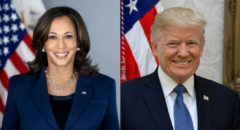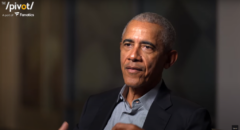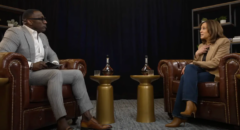
Democrat Tim Walz and Republican JD Vance faced off Tuesday evening for the first and only time this election, offering voters a glimpse into the policy priorities and ideologies of the two men vying to be the next vice president of the United States.
Walz, the governor of Minnesota, went viral months ago after calling former President Donald Trump and Vance “just weird.” Vance, a U.S. senator from Ohio, has faced backlash for his infamous “childless cat ladies” remarks.
In his opening statement, Vance emphasized the importance of “fighting for every single vote” and promised to “take this country back” under the leadership of Trump. Walz, on the other hand, spoke about the need to “continue to build the future together” and highlighted his background as a public school teacher and former football coach.
Unlike the debate between Trump and Democratic presidential nominee Kamala Harris, Vance and Walz engaged in a civil dialogue, a stark contrast to the often combative nature of political debates. They both agreed on the need to address gun violence and find solutions to reduce school shootings.
The debate, which was held in New York City and moderated by CBS News anchors Norah O’Donnell and Margaret Brennan, is the only one before the November 5 general election. Also, Trump has declined to debate Harris again, according to multiple news sources.
The two candidates covered a wide range of topics, from foreign policy to health care and immigration. Here are some key takeaways from the debate:
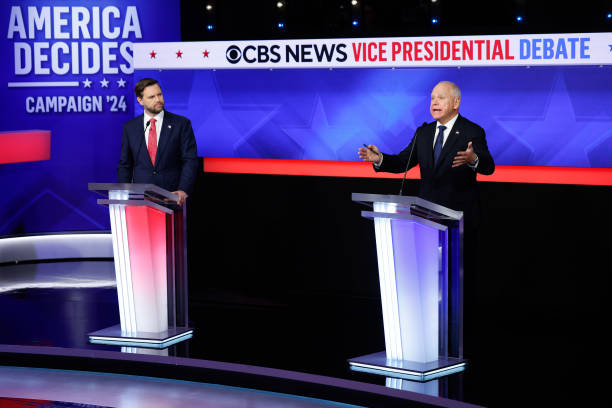
War in the Middle East
Foreign policy was a major focus of the debate, particularly in light of recent events in the Middle East. Walz began by attacking Donald Trump for “his fickle leadership” when it comes to the tension between Israel and Iran.
“It’s clear, and the world saw it on that debate stage a few weeks ago: A nearly 80-year-old Donald Trump talking about crowd sizes is not what we need in this moment,” Walz said.
“Look, our allies understand that Donald Trump is fickle,” Walz continued. “He will go to whoever has the most flattery or where it makes sense to him.” Walz promised “steady leadership” under Harris, while Vance pledged to return to “peace through strength” if Trump is re-elected.
Vance said Trump was an effective world leader when it came to international affairs and pointed to the Hamas attack under the Biden administration’s watch.
When asked about whether Israel should be able to strike at Iran, Vance said: “It is up to Israel what they think they need to do to keep their country safe, and we should support our allies wherever they are when they’re fighting the bad guys. I think that’s the right approach to take with the Israel question.”

Healthcare takes center stage
Healthcare was another key issue, with both candidates outlining their visions for the future of the American healthcare system. Walz made one thing clear: Trump attempted to repeal the Affordable Care Act but Harris will protect Obamacare. Many plans under Obamacare offer affordable insurance to low-income families.
“We need to ensure that every American has access to quality healthcare, regardless of their income or zip code,” Walz said.
Vance, meanwhile, focused on the need to reduce healthcare costs and increase competition in the market. “We need to empower patients and doctors, not bureaucrats,” he argued.
Trump would protect people with preexisting medical conditions, Vance said, but didn’t provide any details of a plan. He touted past healthcare policies under the Trump administration.
“I believe, you know, members of my family actually got private health insurance, at least for the first time, switched off a Medicaid onto private insurance for the first time under Donald Trump’s leadership,” Vance said. “And I think that a lot of people have criticized this ‘concepts of a plan’ remark. … I think Tim Walz knows from 12 years in Congress you’re not going to propose a 900-page bill standing on a debate stage. It would bore everybody to tears and it wouldn’t actually mean anything because part of this is the give and take of bipartisan negotiation.”
Climate change
On climate change, Vance said he and Trump care about clean air and water.
“We want the environment to be clear and safer but one of the things that I’ve noticed some of our Democratic friends talking a lot about as it concerns carbon emissions is the idea that carbon emissions drive all the climate change,” Vance explained. “Let’s just say that’s true just for the sake of arguments that we’re not arguing about weird science. …The answer is that you’d want to reassure as much American manufacturing as possible and even want to produce as much energy as possible in the United States of America because we’re the cleanest economy in the entire world.”
Walz responded by saying the Democrats’ Inflation Reduction Act had made investments in American manufacturing, focusing on the green economy. He also claimed Trump called climate change a “hoax,” a stance many Republicans often downplay.
“Senator Vance has said that there’s a climate problem in the past,” Walz said. “Donald Trump called it a hoax and then joked that these things would make more beachfront property to be able to invest in.”
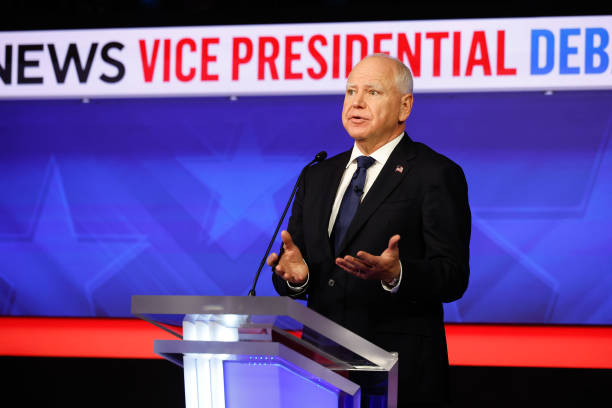
‘Pass the bill’
Immigration was also featured prominently in the debate, with Vance and Walz offering contrasting views on how to address the growing issue of illegal immigrants crossing the U.S. border.
Walz said an immigration bill that was supported by both Democrats and Republicans in Congress would help to solve the border issues, but Donald Trump “told them to vote against it.”
“Pass the bill, she’ll [Harris] sign it,” Walz said.
Vance called for stricter border security and criticized the current administration’s immigration policies as too lenient. “We need to secure our borders and enforce our laws,” he said.
Walz, however, argued for a more compassionate approach, emphasizing the need to address the root causes of migration and provide a pathway to citizenship for undocumented immigrants. “We need to treat immigrants with dignity and respect,” Walz argued. Vance also called for the need to build a wall, a border policy touted by Trump during his presidency.
In an email, the Harris-Walz campaign slammed the GOP ticket on the border issue: “A Harris-Walz administration would work to secure the border and sign the bipartisan border deal into law. Thanks to actions taken by the current administration, border crossings have plummeted to their lowest levels in four years.
“Donald Trump and his running mate have proven they have no interest in, and no plan for, actually securing our border,” the campaign continued.
RELATED: 5 Key Takeaways from the Harris-Winfrey ‘Unite for America’ Rally
Economic differences
The debate also touched on the economy, with both candidates outlining their plans to boost economic growth and create jobs.
Vance emphasized the need for tax cuts and deregulation, arguing that these measures would spur investment and innovation. “We need to unleash the power of the American economy,” he said. Trump’s economic policies will lead to the “highest take-home pay,” Vance added.
Walz, on the other hand, called for increased investment in infrastructure and education, stating that these measures would create good-paying jobs and ensure long-term economic growth. “We need to invest in our people and our future,” he said.
Final pitches
As the debate came to a close, both candidates made their final pitches to the American people. Vance reiterated his commitment to conservative principles and his belief in the power of the American people to overcome any challenge. “We are a great nation, and we will continue to be great if we stay true to our values,” he said.
Walz emphasized the need for unity and cooperation, arguing that the country could only move forward if it worked together. “We are stronger together, and we can achieve great things if we come together as one nation,” he opined.





